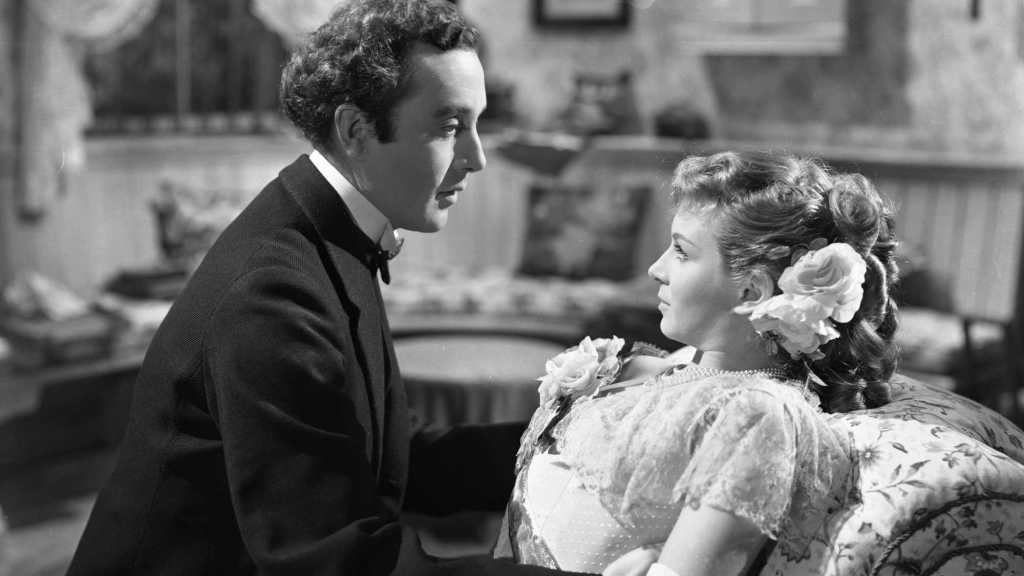
It is so difficult to make a neat job of killing people with whom one is not on friendly terms.
Black comedy is the only genre of film that rivals my affection for film noir, which helps explain why my favorite of the thousands of movies I’ve seen is Dr. Strangelove. But if I had to choose a British black comedy as my most beloved, it would be Kind Hearts and Coronets.
This Edwardian tale begins with an imprisoned man facing hanging with aplomb. The cultured, impeccably dressed Duke Louis D’Ascoyne Mazzini (Dennis Price in his role of a lifetime) devotes his final night to writing his memoirs, thereby telling the audience in flashback of his extraordinary rise and impending doom. His mother was a member of the wealthy, aristrocratic D’Ascoyne family, but was cast out after she married a man who was not only a commoner, but Italian to boot (Imagine that — an Ealing Comedy about social class…). Raised in modest circumstances, Louis desired nothing more than to restore his mother — and of course himself — to the lofty social position which he is sure they deserve. The only problem is that a small army of D’Ascoynes (Alec Guinness. Yes, just Alec Guinness) stand in the way of the maternal line of succession to the family’s hereditary title. But if a chap is clever and ruthless enough, surely there’s some path he might cut to the top?
I’ve praised Robert Hamer in several other recommendations (It Always Rains on Sunday and School for Scoundrels) but he arguably never rose to a greater height than in this 1949 gem. As director and co-screenwriter (with John Dighton), he creates one of the drollest, driest, and delightful movies about social climbing by the two sexes (and how they get sex along the way too). In the process, he proves that movie characters do not have to be likable, only interesting. After all, about a third of the way through we are rooting for a serial killer to wipe out a perfectly gentle fellow, and are later pleased when our hero (?) begins courting the grieving widow.

The movie is also famous for Alec Guinness’ legendary turn playing seven male and one female member of the same, relentlessly slaughtered, family. Of course we know it’s him each time, but with alterations in voice and movement, as well as some makeup and limited use of closeups, Sir Alec makes us glad to go along for the ride. Price is just as effective as Louis Mazzini, and while Valerie Hobson gets higher billing, Joan Greenwood as Mazzini’s lifelong friend and secret lover makes the stronger impression playing a woman who is just as committed to raising her station in life by any means necessary.
The film is brilliantly comic in its spree of absurd murders, juxtaposition of violent and sexual impulses with quintessentially British manners, and quotably humorous lines (I suspect we owe Hamer and Dighton for most of those, but I can’t say for sure because I haven’t read the Roy Horniman novel upon which the script is loosely based). The combined result is arguably one of the best films in British history, and is certainly the summit of black comedy cinema.

p.s. There is only one thing I would change in this film if I could, which is the reference made to the children’s rhyme, “Eeeny meeny miney moe”, which in the era included a racial slur.
p.p.s. Sadly, both Hamer and Price were addicted to alcohol, which led their careers go into premature decline before they died in their early 50s.
